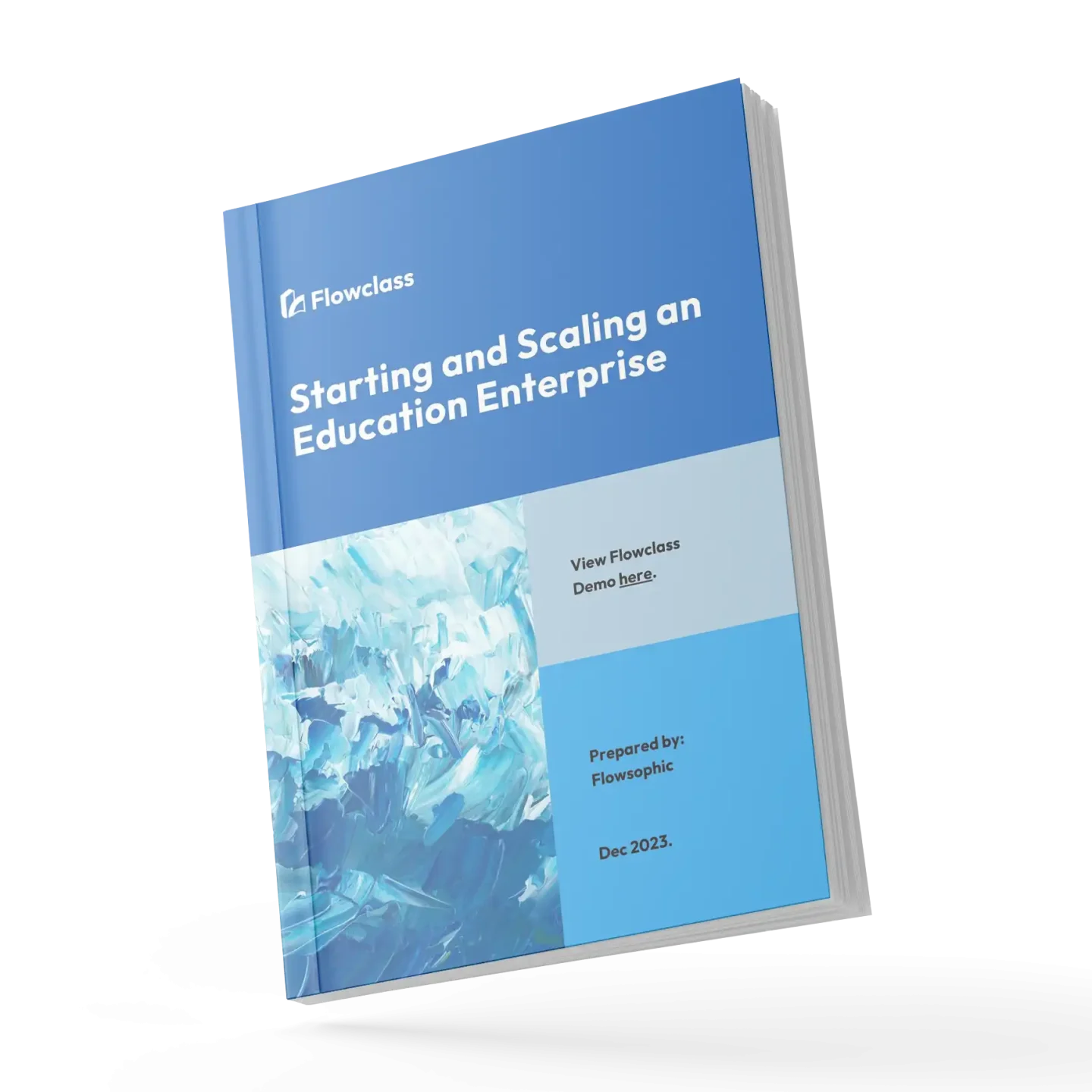In today’s fast-paced educational environment, maintaining organized and punctual classes is paramount.
A robust Course Scheduling System plays a pivotal role in achieving this goal. By automating and streamlining the scheduling process, such systems ensure that classes run smoothly, resources are utilized efficiently, and students receive the education they deserve.

How do I do course scheduling?
A Course Scheduling System is a software solution designed to automate the planning and organization of academic courses. It considers various factors such as instructor availability, classroom resources, and student course selections to create an optimized schedule. By leveraging such a system, educational institutions can minimize scheduling conflicts, enhance resource utilization, and improve the overall learning experience.
These systems use intelligent algorithms to process complex variables and generate optimal schedules. For instance, they can analyze patterns in enrollment data, instructor preferences, and room availability to produce time-efficient and well-structured timetables.
Some systems even offer predictive analytics, enabling institutions to anticipate demand and adjust schedules accordingly. This predictive capability allows schools to adapt to changing enrollment trends, ensuring they are always prepared for fluctuations in course demand.

Key Features of an Effective Course Scheduling System
1. Automated Scheduling
Eliminates manual errors by automatically assigning classes based on predefined criteria. Automation significantly reduces the administrative burden and speeds up the scheduling process, freeing up time for more strategic academic planning.
2. Real-Time Updates
Allows instant modifications to schedules, ensuring that all stakeholders are informed of changes promptly. This feature is especially crucial during emergencies, such as unexpected faculty absences or facility closures.
3. Resource Management
Efficiently allocates classrooms, laboratories, and other facilities based on course requirements. The system can ensure that lab sessions are scheduled in labs with the right equipment or that large classes are assigned to spacious lecture halls.
4. Conflict Resolution
Identifies and resolves scheduling conflicts, ensuring that instructors and students are not double-booked. Conflict detection is especially important in larger institutions with overlapping programs and interdepartmental courses.
5. Integration Capabilities
Seamlessly integrates with other institutional systems such as student information systems, attendance tracking tools, and learning management platforms (LMS). This allows for a connected ecosystem that supports both teaching and learning more effectively.
Real-World Applications of Course Scheduling Systems
Several educational institutions have successfully implemented course scheduling systems to enhance their operations:
- University of Central Florida (UCF)
UCF utilized a scheduling platform that enabled better coordination across its colleges and departments. As a result, they improved classroom utilization rates and significantly reduced the number of unassigned classes during peak hours (ucf.edu). - University of British Columbia (UBC)
UBC implemented a dynamic scheduling system that integrates with their student registration system, resulting in a smoother enrollment experience and a 20% reduction in time spent on manual timetable adjustments (ubc.ca). - California State University, Fullerton (CSUF)
To deal with rapid student population growth, CSUF leveraged an automated scheduling system to maximize classroom usage and align course offerings with student demand, leading to higher on-time graduation rates (fullerton.edu). - Harvard University
Harvard implemented an advanced scheduling system that helps optimize class and exam schedules, reducing student scheduling conflicts and enhancing the use of classroom resources across the campus (harvard.edu). - University of Michigan (U-M)
U-M deployed an integrated course scheduling system to coordinate course offerings across departments, improving scheduling efficiency and reducing waitlists for popular courses (umich.edu). - University of California, Berkeley (UC Berkeley)
UC Berkeley uses a dynamic scheduling system that analyzes enrollment trends and adjusts course offerings in real time, allowing for better alignment between student demand and available courses (berkeley.edu). - New York University (NYU)
NYU has integrated a course scheduling system that enhances collaboration among departments, optimizes classroom space, and improves the student registration process, helping to ensure courses are aligned with student needs (nyu.edu). - University of Texas at Austin (UT Austin)
UT Austin uses a scheduling platform that streamlines classroom assignments and optimizes course schedules, helping to reduce scheduling conflicts and improve the overall student experience (utexas.edu).

Do I Need a Course Scheduling System?
Effective course scheduling can be a complex and time-consuming process for educational institutions. A course scheduling system helps automate and streamline this task, ensuring that both students and faculty have an optimized experience. If you’re struggling with scheduling conflicts, resource allocation, or managing a growing number of students, a course scheduling system could be the solution you need.
Enhanced Efficiency
Automating the scheduling process reduces administrative workload, allowing staff to focus on other critical tasks such as curriculum development, student advising, and academic planning.
Improved Student Satisfaction
Students benefit from clear, conflict-free schedules, leading to a more positive educational experience. The ability to view schedules well in advance allows them to better plan their studies, extracurriculars, and part-time jobs.
Optimal Resource Utilization
Ensures that classrooms, instructors, and facilities are used effectively, minimizing downtime and maximizing productivity. For institutions with limited infrastructure, this is a game-changer.
Better Workload Distribution
Instructors and faculty members often face the challenge of uneven course loads. A course scheduling system can balance workloads fairly across departments, promoting teacher satisfaction and retention.
Data-Driven Decisions
Provides valuable insights into scheduling patterns, enabling institutions to make informed decisions for future planning. Analytics can highlight underused classrooms, high-demand time slots, and departmental inefficiencies.
What is the best course scheduling system
When selecting a course scheduling system, institutions should consider:
Scalability
Can the system accommodate growth and adapt to changing institutional needs? For expanding schools or universities adding new departments, scalability is essential.
User-Friendliness
Is the interface intuitive for both administrators and users? Even the most powerful system can fail if users find it difficult to navigate.
Customization
Does the system allow for customization to fit specific institutional requirements? Features like adjustable course lengths, modular course formats, or hybrid class support can be vital.
Support and Training
Are there adequate resources and support available for implementation and ongoing use? Ongoing customer service, documentation, and training sessions ensure the institution gets full value from the system.
Flowclass: A Comprehensive Course Scheduling Solution
Flowclass offers a robust Course Scheduling System designed to meet the diverse needs of educational institutions, from schools and universities to training centers and tutoring businesses.
With features like automated scheduling, real-time updates, conflict resolution, and seamless integration, Flowclass ensures that classes are organized and punctual.
Flowclass also supports hybrid and online learning formats, making it highly relevant in the post-pandemic educational landscape.
Whether you’re a school managing hundreds of students or a tutoring business handling multiple courses, Flowclass can streamline your scheduling and improve overall academic operations.
Explore more of what Flowclass has to offer by visiting their features page.
Final Thoughts
Implementing a Course Scheduling System is no longer a luxury but a necessity for educational institutions striving for excellence.
It offers the power to transform not just scheduling, but the entire educational experience improving outcomes for students, instructors, and administrators alike.
By embracing modern tools like Flowclass, institutions can ensure that every class starts on time, every resource is optimized, and every student has the best chance of success.
Explore how you can revolutionize your scheduling processes and elevate your learning environment today with Flowclass.


